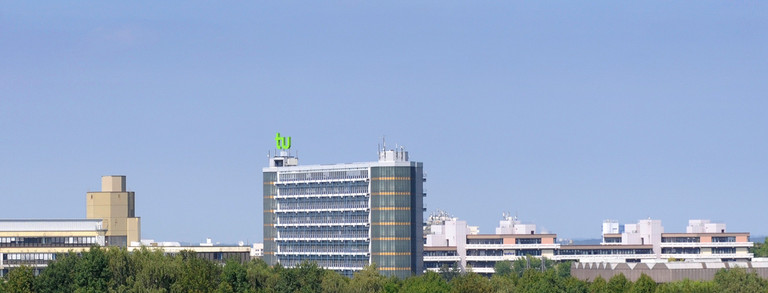Institute of Journalism Develops International Online Course
- News in brief
- Top News
- Studying & Teaching at TU Dortmund University

The objective of the COPE project is to provide teaching content for journalists covering the EU’s Cohesion Policy – that is, policies intended to enhance economic and social cohesion in the European Union. A course on this scale is known as a Massive Open Online Course (MOOC). Together, the project partners are preparing such an online course with 14 modules in English, which will then be translated into the official languages of the European Union. At the beginning of 2024, journalism students at all 27 universities participating in the project will test it.
TU Dortmund University is the project coordinator and responsible for developing four modules
The Institute of Journalism will develop three modules for the course. Responsible for this work are Susanne Fengler, Professor of International Journalism, and Henrik Müller, Professor of Economic Policy Journalism. Also involved in the project alongside the researchers from the Institute of Journalism is Professor Christoph Schuck from the Institute of Philosophy and Political Science. He will develop a further module together with colleagues from the University of Wroclaw.
Professor Susanne Fengler is also COPE’s project leader. “The media play a pivotal role for political and social cohesion in Europe,” she says, “both for creating a European public and for the perception of EU policies in the member states.” The project is highly significant, she thinks, especially in view of the impact on Europe of the war in Ukraine. Through good journalism, she continues, citizens in the European Union will in the future have a better understanding of EU policy and be able to deal critically with it, for example in elections.
Isabella Kurkowski, research assistant at the institute and Managing Director of COPE, adds that EU Cohesion Policy has hardly cropped up in journalists’ training so far and that countries also understand the topic from different local perspectives. “COPE not only explains the EU’s Cohesion Policy but also teaches how to report on it. The course should thus help to train journalists throughout Europe in a sound and homogenous way,” says Kurkowski. During the project launch at Erich Brost House, Florin Rugina from the European Commission added: “The idea of Cohesion Policy is to help especially Europe’s less developed regions to progress and, for example, to create jobs.” The aim is to train journalists with cross-border skills in all countries by providing everyone with the same teaching material.
Project partners
The project consortium comprises researchers and trainers from TU Dortmund University, AP University of Applied Sciences and Arts Antwerp in Belgium, the Aristotle University of Thessaloniki in Greece, the University of Wroclaw in Poland, the University of Porto in Portugal, Babeș-Bolyai University in Romania as well as the European Journalism Training Association (EJTA) and Arena for Journalism in Europe (an NGO).
Contacts for queries:





![[Translate to English:] Partner Four hands are holding the green logo of TU Dortmund University](/storages/tu_website/_processed_/1/d/csm_Partner_Nicole_Rechmann_KW_670eba0154.jpg)




![[Translate to English:] Forschung An apparatus with tubes in a laboratory](/storages/tu_website/_processed_/0/c/csm_Forschung_Juergen_Huhn_4fa3153b51.jpg)
![[Translate to English:] Studium Five students are sitting in a lecture hall. They are talking to each other.](/storages/tu_website/_processed_/c/9/csm_Studium_FelixSchmale_dbdbfb0dd7.jpg)





